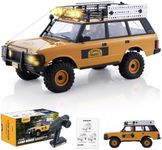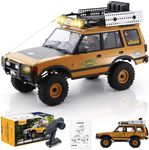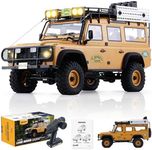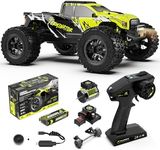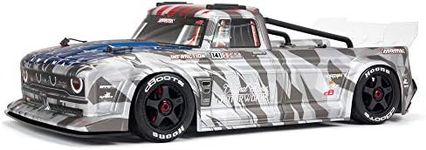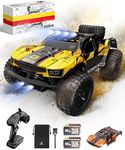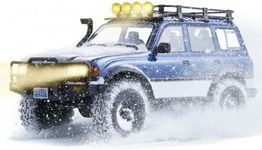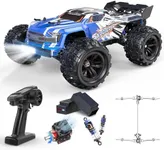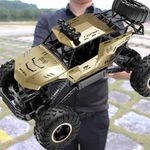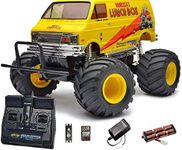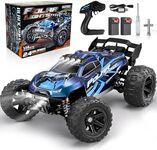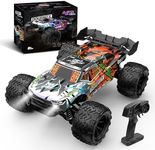Buying Guide for the Best Rc Cars For Adults
Choosing the right RC car can be a fun and rewarding experience, especially for adults who are looking to enjoy the thrill of remote-controlled vehicles. When selecting an RC car, it's important to consider various specifications that will affect performance, durability, and overall enjoyment. Understanding these key specs will help you make an informed decision and find the best fit for your needs.ScaleThe scale of an RC car refers to its size relative to a real car. Common scales include 1:10, 1:8, and 1:5. A 1:10 scale car is one-tenth the size of a real car. Larger scales, like 1:5, offer more detail and realism but require more space to operate. Smaller scales, like 1:10, are more manageable and easier to transport. Choose a scale based on where you plan to drive your RC car and how much space you have available.
Motor TypeRC cars come with either brushed or brushless motors. Brushed motors are more affordable and easier to maintain, making them suitable for beginners. Brushless motors are more powerful, efficient, and durable, providing better performance and speed. If you're looking for high-speed racing or off-road adventures, a brushless motor is a great choice. For casual driving and learning, a brushed motor will suffice.
Battery TypeThe battery type affects the runtime and power of your RC car. Common battery types include NiMH (Nickel-Metal Hydride) and LiPo (Lithium Polymer). NiMH batteries are safer and more affordable, but they offer less power and shorter runtimes. LiPo batteries provide higher power and longer runtimes but require careful handling and charging. If you want extended playtime and better performance, opt for LiPo batteries. For safer and simpler use, NiMH batteries are a good choice.
Terrain CapabilityRC cars are designed for different types of terrain, such as on-road, off-road, and all-terrain. On-road cars are built for smooth surfaces like pavement and indoor tracks, offering high speed and precision. Off-road cars have rugged tires and suspension systems to handle dirt, gravel, and uneven surfaces. All-terrain cars combine features of both, allowing versatility in various environments. Consider where you'll be driving your RC car and choose a model that suits the terrain.
SpeedSpeed is a crucial factor for many RC car enthusiasts. RC cars can range from slow, beginner-friendly speeds to high-performance models that reach over 60 mph. If you're new to RC cars or plan to use them in smaller spaces, a lower speed model will be easier to control. For experienced users or those looking for thrilling races, higher speed models will provide the excitement you seek. Match the speed to your skill level and intended use.
DurabilityDurability is important to ensure your RC car can withstand crashes and rough handling. Look for models with strong chassis, quality materials, and good build quality. Metal parts and reinforced components add to the durability. If you plan to drive your RC car aggressively or in challenging environments, prioritize durability to avoid frequent repairs. For casual use, standard durability will be sufficient.
Control RangeThe control range is the distance over which you can operate your RC car using the remote control. Typical ranges vary from 100 to 300 feet. A longer control range allows more freedom and flexibility, especially in open areas. If you plan to drive your RC car in large outdoor spaces, a model with a longer range is beneficial. For indoor use or smaller areas, a shorter range will be adequate.
